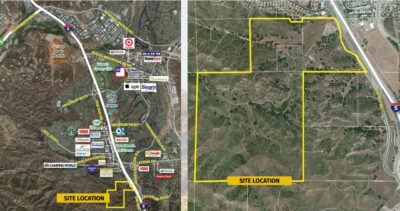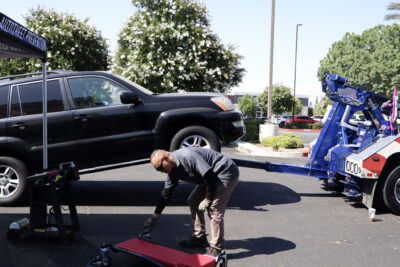Back in 1958, economist John Kenneth Galbraith warned that America’s greatest danger wasn’t poverty — it was abundance. Fueled by mass production and powerful marketing, we were on track to become a nation with more stuff than purpose.
In “The Affluent Society,” Galbraith argued that advancing technology would meet most material needs with far less human labor. But instead of rethinking what a good society looks like, we doubled down on the old rules: government is bad, markets are god, and private wealth will somehow benefit everyone.
Today, that prophecy has come true. Today, a handful of families own more than half of America. Corporate profits soar while wages stagnate. And work — the core source of dignity, identity and structure for millions — is being eaten alive by automation and artificial intelligence.
Jobs are disappearing. Not just factory jobs. Not just drivers. But coders, paralegals, editors, even teachers and doctors — all being quietly replaced by machines. AI is here, and it’s not slowing down.
So where’s the plan? Where’s the national conversation about what happens next?
All we hear is — distractions.
Some leaders stir up nostalgia, pick fights over history books, or sell us the lie that we can bring back coal, oil and the factory floor. But no one is telling the truth about what’s coming — or what needs to be done to give people a future that’s not just economically sustainable, but humanly meaningful.
Galbraith had an answer. He believed that in a time of abundance, government’s job isn’t to step aside — it’s to step up. When markets no longer offer enough meaningful work, society must create it — not busywork, but roles that give people purpose, dignity and value.
That means investing in human dignity:
More teachers and smaller classrooms.
More mental health workers and social service professionals.
More elder care, hospice and home health providers.
More public service jobs that build stronger communities, cleaner environments, safer food, better infrastructure, and more beauty in daily life.
These aren’t jobs the private sector prioritizes. But they are essential — because they are work only humans can do. Machines can’t raise children. They can’t comfort the dying. They can’t build trust, resolve conflict, or create belonging.
But these roles don’t materialize on their own. They require investment, training, and — yes — taxes. That’s the part no politician wants to say out loud. Building a human-centered future won’t be free. It will require hard choices, new priorities, and the courage to believe that government can still do good.
Instead, we get political stunts. Tax cuts for the wealthy. Budget cuts for care. Silence about AI, and $75 billion for militarized Immigration and Customs Enforcement forces treating our own cities like war zones
We’re watching a crisis unfold — and pretending what we’re seeing isn’t really happening. We need new government performance standards over culture war theatrics. Or are we simply automating our way to loneliness?
In a future where machines do more and people do less, the biggest question becomes:
What is work for? Is it a paycheck? A path to status? Or is it something deeper — a way we express our value, connect to others, and build a shared life?
These aren’t just philosophical questions. They are policy questions. And they’re urgent.
Because right now, we’re not preparing. We’re not discussing. We’re not even acknowledging what’s ahead. We’re sleepwalking toward a world where millions have no clear role — and no one is saying a word.
Are our people healthy?
Are our people connected?
Are we raising our children caringly and lovingly?
Are we caring for aging parents with support?
Are we learning, growing, contributing — even as automation scoops up larger sectors of employment?
These questions spotlight our failure of leadership. Our political decision to distract, to delay, and to divide — while time runs out.
But government is not the enemy, as we are so often scolded. It’s the only force large enough, accountable enough, and democratic enough to guide us through this transition. Not with slogans, but with action. Not with nostalgia, but with a vision rooted in dignity.
This is not a call for bureaucracy. It’s a call for seriousness. For honesty. For courage.
Because the truth is, America isn’t broke. We’re rich beyond imagination.
What we’re lacking is the will to use that wealth — not to make the rich richer, but to keep people relevant, engaged, and whole in a world remade by machines.
Galbraith saw it coming. He believed we could rise to meet the moment.
We still can. But only if we stop whispering.
Because this silence we’re suffering?
It’s costing us our future in everything.
Gary Horton’s “Full Speed to Port!” has appeared in The Signal since 2006. The opinions expressed in his column do not necessarily reflect the opinions of The Signal or its editorial board.











